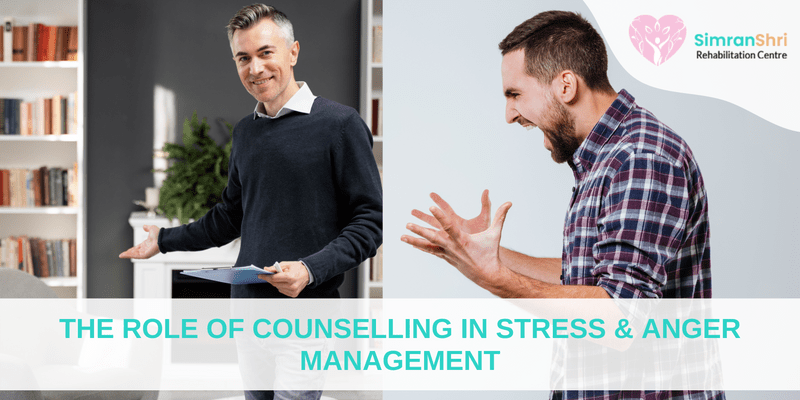

There are several ways to cope with stress; multiple ways can also be clubbed together to alleviate stress! This can help individuals relieve the stress affecting their physical and mental health. When deciding how to manage stress, it is essential to ensure that the method you're choosing is healthy and can be pursued long-term. For example, stress eating; indulging in comfort food may cause temporary relief to someone, but if continued, it starts negatively impacting one's health. This may give rise to another potential stressor- poor physical health.
Seeking stress management counselling is one healthy way of coping with stress in the long run. A mental health professional can suggest healthy, personalised techniques that best suit your situation.

Stress can take the shape of a substance use disorder, lack of relaxation or pleasure, pain or chronic illness and thus, negatively impact one's well-being unless one takes help from a mental health doctor. Mental health professionals work hand in hand with individuals to work through the stressors and relieve their symptoms.
Stress management counselling addresses the inevitable life stressors such as divorce, loss, or life-altering medical conditions. Resorting to therapy can help manage these concerns and their effects on one's life. If an individual is stressed due to relationship or family issues, family or couple therapy can help individuals resolve issues. It helps reduce stress for everyone involved.
Therapists equip individuals to cope with stress and teach personalised healthy coping techniques that best suit one's needs. Since stress affects an individual's body, emotions and mind. Here are some tips you can use to alleviate stress from all three:
● Massage or acupuncture
● Deep breathing
● Taking a nap
● A hot bath
● Aromatherapy
● Taking a nature walk
● Exercises, such as dancing, running, yoga, or swimming
● Spending time with a pet
● Listening to soothing music
● Planning and keeping organised
● Focusing on positive life events
● Meditating
● Reality testing negative thoughts and catastrophic thinking
● Using positive self-talk or affirmations
● Engaging in a hobby, such as crafting, cooking, or gardening
● Expressing stressful emotions through art or writing
● Laughing or crying
● Talking stressful events over with someone you trust
Mental health professionals such as counsellors and therapists use several treatments to help individuals cope with mental health disorders and stress. For instance, cognitive behavioural therapy is an effective therapy for alleviating stress. This therapy changes the underlying negative thought patterns or ideation that serves as a breeding ground for stress. It helps individuals develop a new way of thinking about the causes of their stress. This implies that depression, anxiety and stress management counselling promotes mindfulness as a counselling technique for stress management.
Other mindfulness-based stress management counselling includes dialectical behaviour therapy, mindfulness-based cognitive therapy and acceptance and commitment therapy. Stress can arise from mental health disorders like anxiety, depression, PTSD, or addictions. Thera[y can treat all these conditions. Nasha Mukti Kendra offers individual therapy to help individuals combat addiction and its underlying causes.
A psychologist can help you assess your mental health, based on which they recommend a suitable treatment plan for your condition.
Get in touch with a mental health professional to discuss your stressor or symptoms, regardless of how severe they appear. Your psychologist can find the best stress management counselling strategy for you.